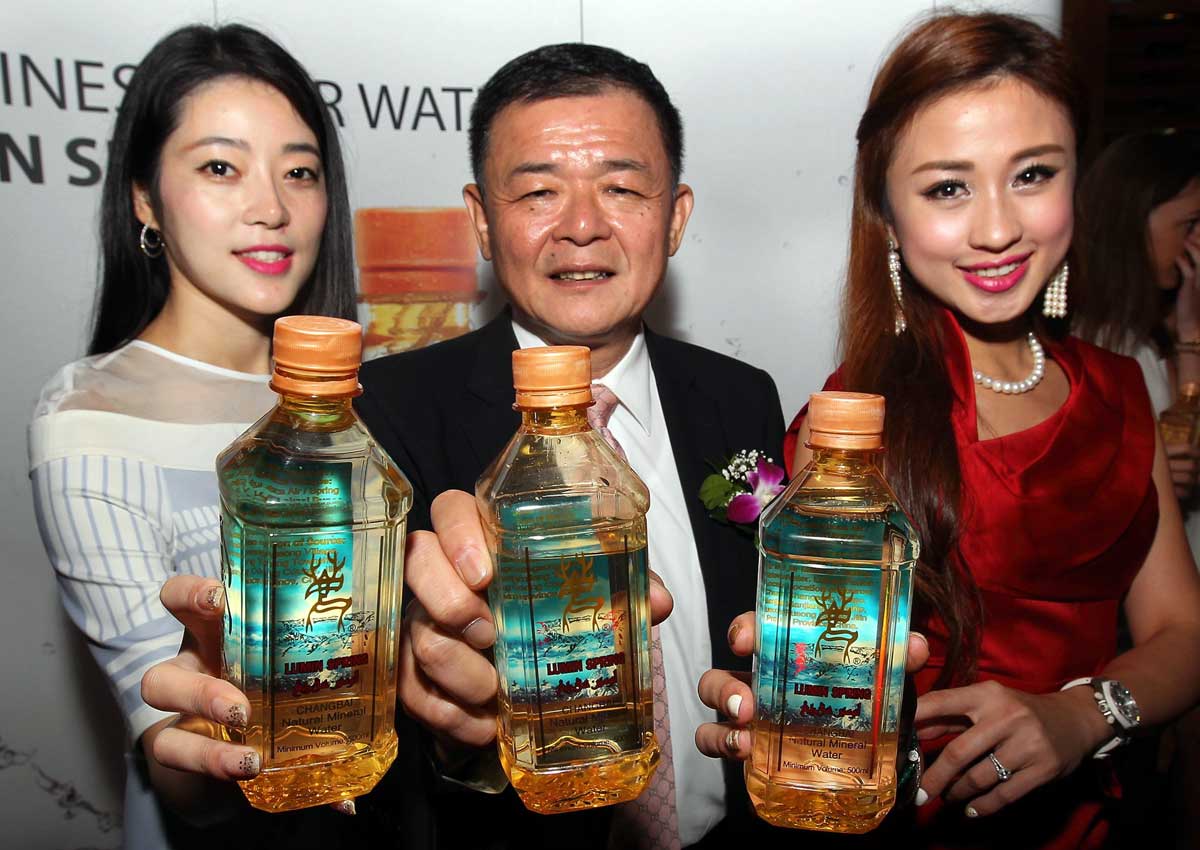The paint tin has a silhouette of a mosque on the label, while the paint company’s brochure has the face of a pig crossed out.
Indonesian company Bernahal uses these images to show its wall paint is halal, or permissible for Muslims, part of a growing range of goods aimed at winning over pious Islamic consumers in a global market estimated to be worth US$2 trillion (S$2.7 trillion) a year.
To emphasise its appeal, Bernahal says the chemicals in its paints are free from lard, which is considered unclean in Islam.
In Indonesia, the world’s most populous Muslim nation, there are many other items touted as halal, such as a computer mouse, headscarves and even shirt buttons.
In Malaysia, there are discussions whether to introduce halal supermarket trolleys that cannot be used by buyers of pork. There is also a recently launched halal Internet browser and halal household detergents.
Some think the frenzy over “halal” products has gone too far and accuse businesses of exploiting pious Muslims who fear touching or eating items deemed unclean, or haram, meaning forbidden.
But others say it is the Muslims who insist on the halal label.
A director at Malaysia’s Islamic Development Department (Jakim), Mr Sirajuddin Suhaimee, told The Straits Times that “the push power of consumers has nudged the industry to get halal certification”.
“People ask for a halal toilet bowl because it comes into contact with humans. Same for plastic bags and packaging that have contact with food,” said Mr Sirajuddin.
Datuk Hooi Lai Lin, chief executive of Ken Rich Corporation, which produces halal personal care products and household detergents, said: “We just want to cater across the board and give comfort to all Muslims.
“Even though our cleaning products are not consumed, a lot are touched by people.”
Lumin Spring International Group produces mineral water that has the Jakim halal logo. “If we tell buyers that our water is Malaysian halal-certified, it sells better,” said company director Philip Ting.
The drive to make more products and services halal has grown in the past three decades as Muslims have become more observant of Islam, as shown by the growing number of Muslim women who wear the tudung or headscarf around the world.
“It’s not a choice. We must use halal goods,” Perak state’s mufti, Tan Sri Harussani Zakaria, told The Straits Times.
But a worry is that Muslims are buying these products simply because of the halal stamp, without asking whether a can of paint, a computer mouse, a bottle of water or that colourful headscarf needs the label in the first place.
“Muslims are required to eat halal, but the problem is when people practise religion beyond the nature of Islam itself,” Mr Mohd Asri Zainul Abidin, Perlis state’s mufti, told The Straits Times.
“Traders are commercialising religion and halal by promoting what Muslims should use and consume,” he added.
Such commercial uses of the label have spurred a group of auditors, including Muslim Singaporeans, to form a new association to help governments certify manufacturers using halal guidelines and standard practices.
The International Association of Halal Auditors, which will be registered in Indonesia by the end of this year, will possibly be the first halal body in the world to be led by professionals, said Mr Imran Musa, 51, one of the main initiators.
The Singaporean is the chief executive of Ark Incorporation, a Singapore company that has audited 40 companies worldwide for halal compliance since 2011.
Among the group’s aims is to quash “halal extremism” and set the record straight on what is “genuinely halal and good”, Mr Imran told The Straits Times.
“Having unnecessarily stricter rules towards halal will lead to halal extremism. Who would have thought of halal paint, halal tudung and halal condoms?” he said.
“Halal extremism is slowly creeping in as some clerics impart their own judgment, hence making halal more stringent.”
Mr Imran has so far gathered 50 auditors from Singapore, Malaysia, Indonesia, Australia, South Korea, Japan, Thailand, New Zealand, Germany, Italy and Britain to join the association.
He said the proposed group has received the backing of Indonesia’s top Islamic authority, the Indonesian Ulema Council (MUI), which is also the halal certification body in the country.
Halal certification currently has no universally accepted standard, with different countries imposing varying interpretations of the Islamic rules for what is permissible.
Some go beyond what the religion requires, in what is described by Mr Asri as being “halal crazy”.
To add to the headache, halal approvals issued previously for products can be reversed depending on circumstances, MUI’s deputy secretary-general, Tengku Zulkarnain Rafiuddin, told The Straits Times.
For instance, kopi luwak, made from coffee beans which are ingested and excreted by civets, is halal in Indonesia as the waste matter can be washed away. But if the coffee beans break up in the animals’ bodies before they are expelled, the beans become haram, he said.
Kopi luwak is halal in Singapore. But it is haram – not permissible for Muslim consumption – in Malaysia.
Manufacturers say stricter requirements translate into more time, money and paperwork which, in turn, drive up costs of goods.
Typically, a company can take anything from two to five months and spend US$4,000 to US$67,000 to get their products halal-certified in Singapore, Malaysia and Indonesia, officials say.
Mr Martin Wissler, sales international manager for Germany-based Martin Braun group, which exports pastry and baking ingredients, said he hopes to deal with a single body with clear guidelines.
He told The Straits Times: “This is actually what we are looking for as a manufacturer… We wouldn’t mind paying for such good services provided we can save a lot of time.”

This article was first published on June 14, 2016.
Get a copy of The Straits Times or go to straitstimes.com for more stories.





